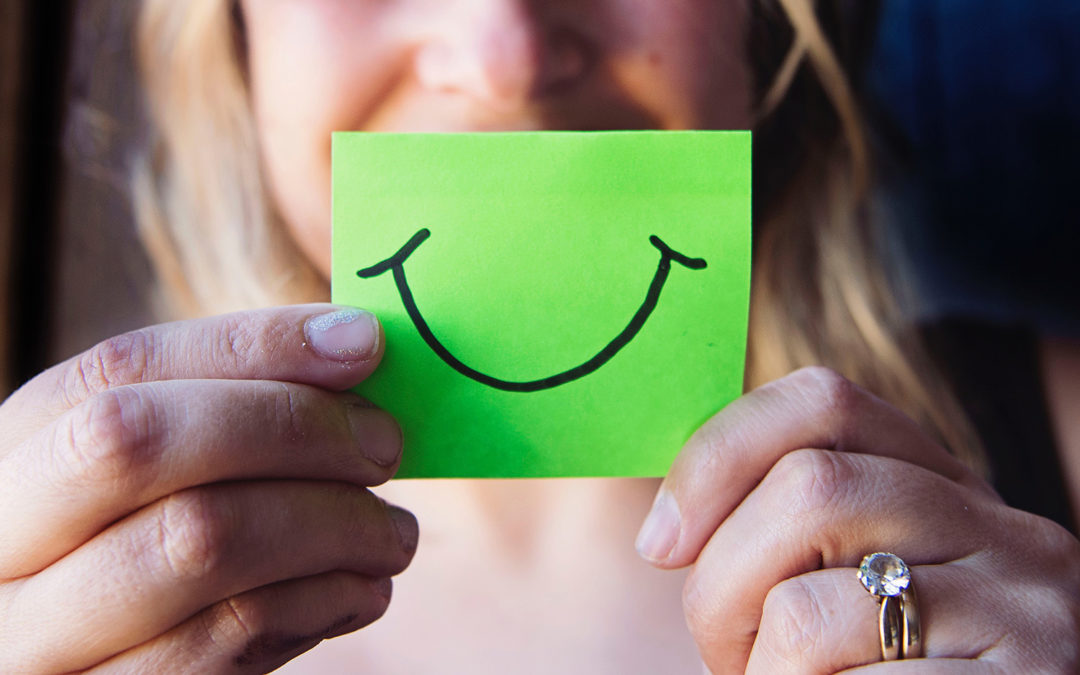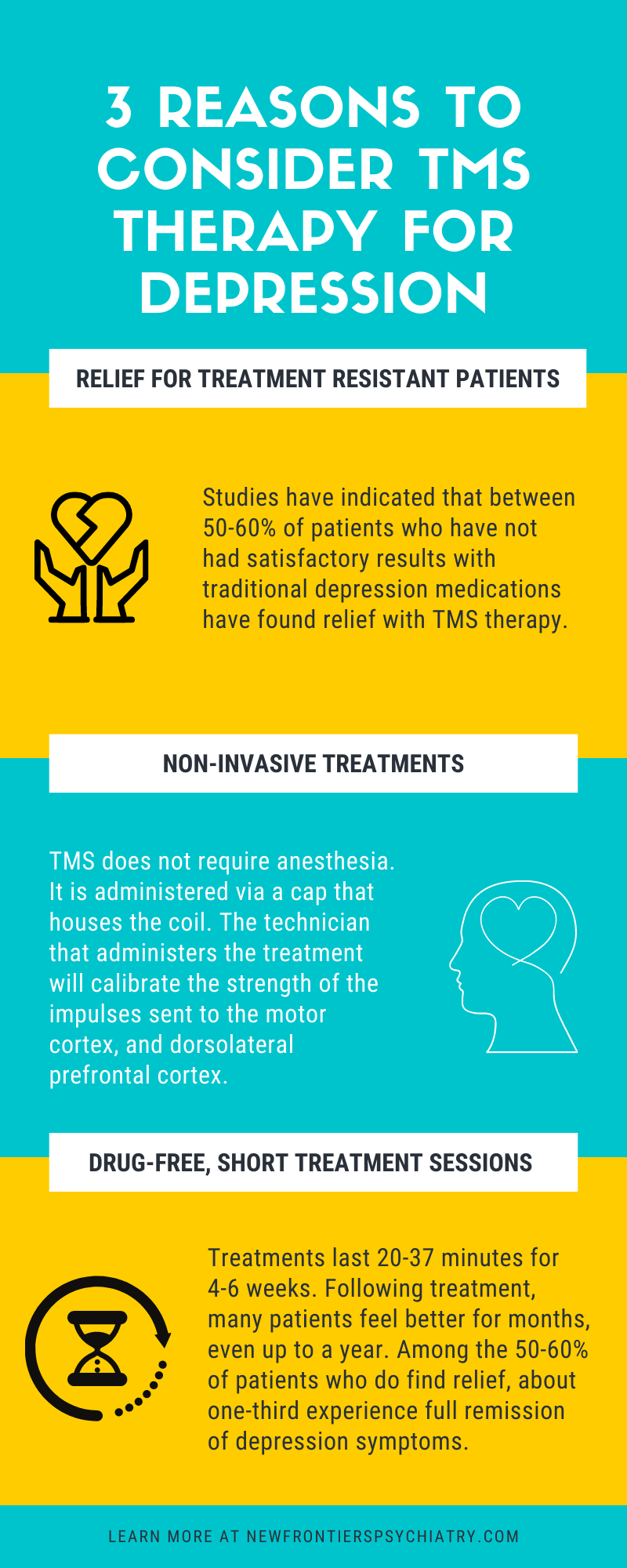There are different types of Transcranial Magnetic Stimulation (TMS) on the market today. New Frontiers Psychiatry is a Brainsway TMS machine provider and can offer patients rTMS and dTMS.
What is rTMS?
Repetitive Transcranial Magnetic Stimulation (rTMS) is an alternative form of depression treatment that addresses patients who have not responded to traditional antidepressant medications. rTMS is a non-invasive therapy that involves the use of a figure 8 coil to transmit magnetic impulses to the brain. There is no pain involved and either a doctor or a nurse practitioner must refer a patient for treatment.
What is dTMS?
A variant of rTMS, deep TMS (dTMS), provides more extensive coverage of the brain via an H-shaped coil. dTMS stimulates the brain at a deeper level at approximately 1.6 inches.
Only Brainsway TMS machines offer dTMS treatment.
New Frontiers Psychiatry is a Brainsway TMS machine provider and can offer patients rTMS and dTMS.
With about 30% of depressed patients not responsive to traditional antidepressants, Transcranial Magnetic Stimulation (TMS) is FDA approved and effective for many people.
3 Reasons to Consider TMS for Depression
1. Offers Patients with Treatment-Resistant Depression Hope for Healing
If you have been taking antidepressant medication and symptoms have not responded, consider TMS therapy.
Studies have indicated that between 50-60% of patients who have not had satisfactory results with traditional depression medications found relief with TMS.
2. Non-Invasive Treatments
TMS does not require anesthesia and is administered via a cap that houses the coil. The technician or doctor that administers the treatment will calibrate the strength of the impulses sent to the motor cortex, and then to the dorsolateral prefrontal cortex. This has been shown through clinical evidence to be the part of the brain most involved with regulating depression.
3. Drug-Free, Short Treatment Sessions and Long-Term Relief
Both rTMS and dTMS treatments are administered over a time period of between 4-6 weeks. Twenty-minute dTMS sessions are generally shorter than the circa 37-minute sessions for rTMS.
Following treatment, many patients feel better for many months afterward, with the average duration noted to be about a year. Among the 50-60% of patients who do find relief, about one-third experience full remission, meaning that they do not experience any symptoms.
TMS is an approved alternative for depression treatment that can help many patients with stubborn symptoms. New research continues to document progress for its efficacy, and it is worth speaking with your doctor if you believe it may help you.
New Frontiers Psychiatry in Milwaukee, WI offers advanced solutions for depression, anxiety, PTSD, bipolar disorder, and more.


